While the Prague Jewish Quarter is certainly one of the most interesting and impressive parts of Prague to visit, it has also sadly seen more than its fair share of trying times and tragic events.
Once the largest Jewish ghetto in Europe, the Jewish Quarter is now popular amongst tourists because it holds many of Prague’s important sights and attractions.
In Prague’s Jewish Quarter, synagogues and spectacular buildings lie side-by-side with statues and cemeteries, and history is everywhere you look. It is definitely worth visiting if you have the chance, so let’s take a look at some of the top sights you can expect to see in Prague’s Jewish Quarter.
*When looking for the best price and biggest selection of hotels in Prague, check prices on Booking.com. We’ve found they are the best option and have a great cancelation policy.
Best overall hotel in Prague – MOODS Charles Bridge Hotel
It’s in a great central location close to Old Town & the Charles bridge, great views and tons of restaurants & shops at your doorstep.
Best Jewish Quarter Tour – Prague’s Jewish Quarter Private Tour
If you are looking for the best tour of Prague’s Jewish Quarter, book this private tour. This private 3-hour tour is super affordable, considering it is private. The guide will meet you at your hotel, and you’ll visit all the synagogues in the Jewish Quarter and the Jewish cemetery, but because it is a private tour, it really is up to you where you want to go.
Prague Jewish Quarter History
Lying in between the busy Old Town square and the scenic Vltava River, the Prague Jewish Quarter has been around for a very long time. The first mention of a Jewish District dates back to 1096. It is believed that Jews first came to live here after they were banned from living in other places and faced persecution in many countries.
In 1215, a law was passed that forbade Jews to live amongst Christians, so they were forced to live in a walled ghetto. Over a hundred years later, in 1389, 1,500 Jews were killed on Easter Sunday. More massacres took place in the 15th and 16th centuries as they faced horrible repression and constant persecution. This continued until 1850 when the Holy Roman Emperor Joseph II emancipated the Jews and gave them equal rights to the rest of the citizens of the country.
The Prague Jewish Quarter – which had previously been known as the ‘Jewish Ghetto’ or ‘Jewish Town’ – was then named Josefstadt in the emperor’s honor. As they could now live outside the quarter, many of the inhabitants moved out, with only the poor and Orthodox Jews staying.
While the quarter is still very impressive to walk around today, most of it was destroyed between 1893 and 1913 as city planners tried to make Prague look more like Paris. The area suffered yet more damage during World War II. Tragically, most of Prague’s Jews were deported to concentration camps during the Holocaust, and Josefstadt was left almost deserted.
Its beautiful synagogues and wonderful ceremonial hall were preserved, however, as Hitler horrifically wanted to create a ‘Museum for an Extinct Race’ in the former ghetto after the war. In fact, the Nazis actually transported and kept many Jewish artifacts from across Europe in Prague’s Jewish Quarter; a number of these can nowadays be viewed in the fantastic Jewish Museum.
After the war, life slowly returned to the quarter, although fewer and fewer people live in the area with each passing year. Initially, this was because many Jews immigrated to Israel in the 50s. Since then, businesses have been moving into the area with increased tourism to Prague, but the Prague Jewish Quarter also saw people moving out of the area in recent times.
There is still a small, thriving Jewish community in the city. In addition to the people, the Prague Jewish Quarter is home to lots of interesting historical and religious sites that have been well preserved.
How to get to the Prague Jewish Quarter
You can easily walk to Prague’s Jewish Quarter on foot from the Old Town. If you are coming from other parts of the city, you may need to take a bus, metro, or tram to get to the area. It is well serviced by all three. The name of the stop you want to head to is Staromestska. From here, it is just a short walk to all the main sights in the Prague Jewish Quarter.
- Metro station: Staromestska (line A)
- Tram stop: Staromestska (trams 2, 14, 17, 18, 93)
- Buses: Staromestska (194 and 207)
Things to See in Prague’s Jewish Quarter
Prague’s Jewish Quarter is full of fascinating historical and religious sites for you to visit. Here are some of our favorites.
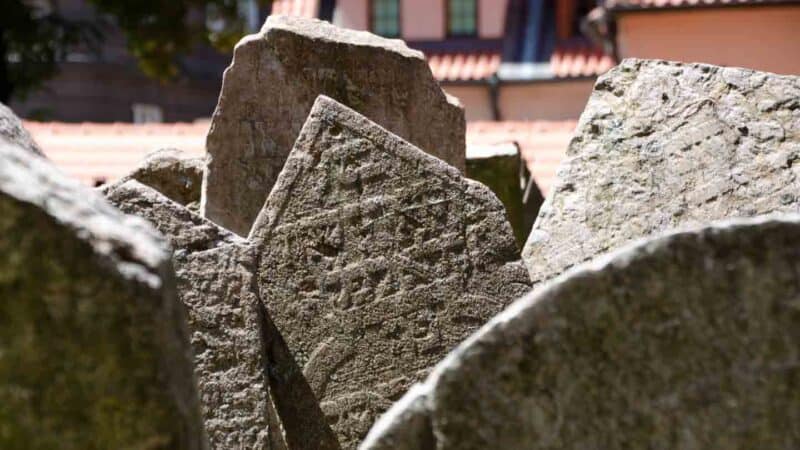
1. Old Jewish Cemetery
Surrounded by synagogues, the Old Jewish Cemetery is a fascinating place to visit. Remarkably, more than 12,000 gravestones are crammed into the small space. One of the largest Jewish cemeteries in the world, it was used between the 15th and 18th centuries, and numerous famous residents are buried within it.
Among them are David Oppenheim – the former Chief Rabbi of Prague – and Rabbi Loew of the famous Golem legend. Many of the graves have different ‘layers’ to them, as up to 12 graves were placed one on top of the other to save space in the tiny cemetery.
According to Jewish beliefs, the remains of a person should not be moved. So, instead of relocating out of their landlocked area – they were forced to go vertically. This is an actual cemetery, and when you visit, please act accordingly – be respectful.
Related Article: The Perfect 3 Days in Prague Itinerary
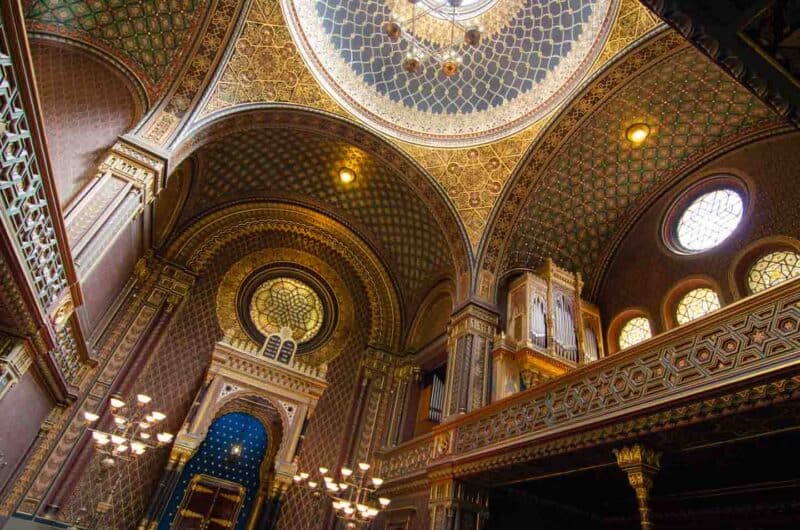
2. Spanish Synagogue
Beautiful to behold, the Spanish Synagogue is built in a wonderful Moorish Revival style and is the last synagogue to have been built in the quarter. Dating back to 1868, it is widely regarded as one of the most beautiful synagogues in Europe.
While you can visit the Spanish Synagogue as part of a tour or regular visit, it often hosts classical music concerts. It is well worth attending one of these if you have the chance!
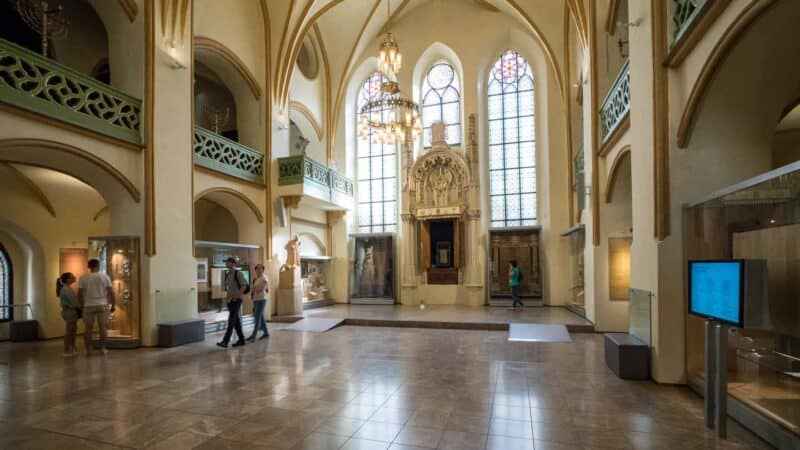
3. Jewish Museum in Prague
The Jewish Museum really is a must-see when in Prague; its delightful exhibitions are located in different institutions throughout the quarter. Paying to enter the museum gains you access to four of the ancient synagogues, as well as the Ceremonial Hall and Old Jewish Cemetery.
In addition, it also has its own gallery, library, and educational center, where lots of cultural events are hosted over the year. As such, it really is a fascinating place to visit, and you’ll come away having learned a lot about Prague’s rich Jewish heritage and culture.
Related Article: Complete List Of The Best Museums in Prague
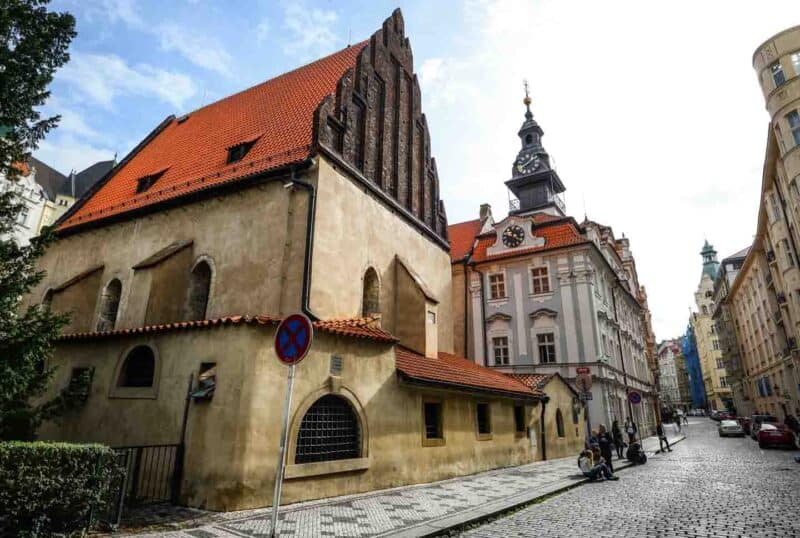
4. Old-New Synagogue
The oldest synagogue in Prague, the Old-New Synagogue, is still in use today and was built all the way back in 1270. The Gothic-style building looks like it is from a time gone by, and that’s because it is. There is a very medieval feel about it once you enter and see its vaulted interior and naves.
Apart from the Golem in the attic, of particular interest is the golden banner that lies at one end of the synagogue. This was awarded to Prague’s Jewish Community in the 1600s by the Holy Roman Emperor as thanks for their help in defending the city during the Thirty Years’ War.
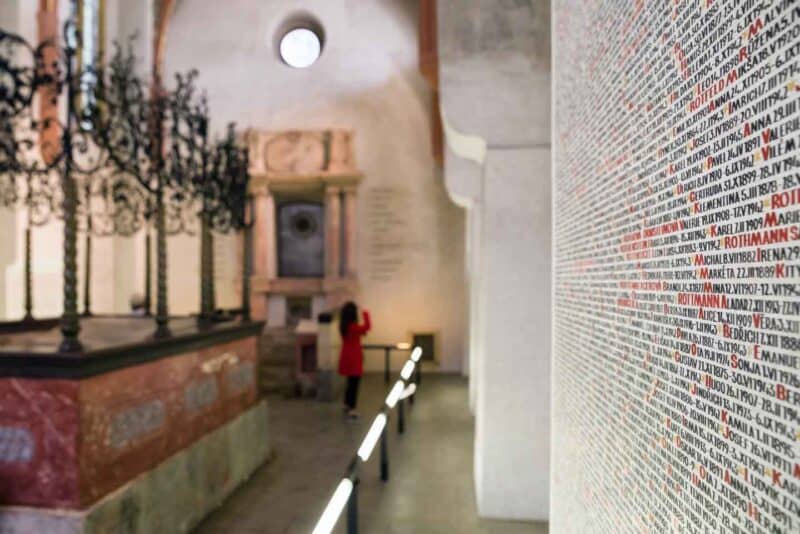
5. The Jewish Quarter Synagogues (5 in total)
Apart from the two synagogues mentioned above, the Prague Jewish Quarter has another three for you to check out; they each have their own unique look and feel. As they are all within walking distance, it is definitely worth taking a short trip around the quarter to visit each of them when in Prague.
The largest of these is the Klausen Synagogue, which dates to 1694 and lies just a stone’s throw away from Maisel Synagogue. One of the most famous is the wonderful Pinkas Synagogue; built-in 1535, it has a moving memorial to the victims of the Holocaust inside it.
- Klausen Synagogue address: U Starého hřbitova 39/1, 110 00 Josefov, Czechia
- Maisel Synagogue address: Maiselova 10, Josefov, 110 00 Praha 1, Czechia
- Pinkas Synagogue address: Široká 23/3, 110 00 Josefov, Czechia
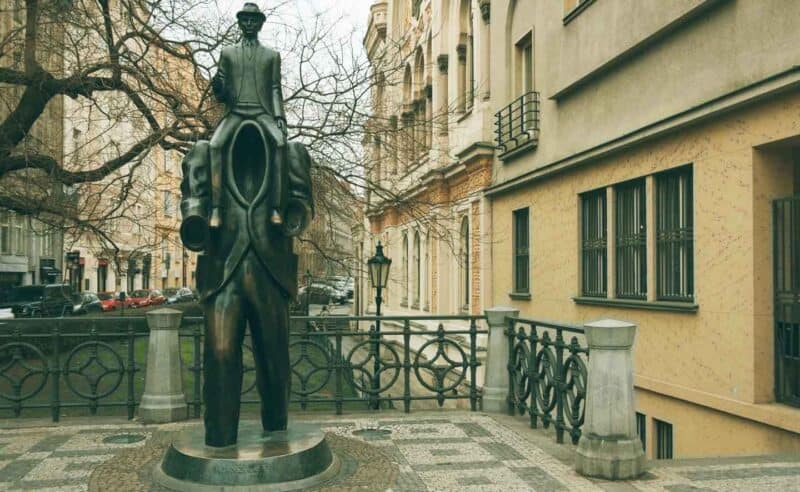
6. Franz Kafka Monument
Lying right in front of the Spanish Synagogue, the Franz Kafka Monument is a lovely statue that was erected to commemorate the famous writer who was born and grew up in Prague.
It is very distinctive to behold, as the statue shows Kafka sitting on the shoulders of a headless figure. This design was inspired by his short story – Description of a Struggle.
Everywhere you go in the city, you’ll see mentions of Franz Kafka – he is the most famous writer to come from Prague.
Related Article: Prague Nightlife – Where to Go EACH Night
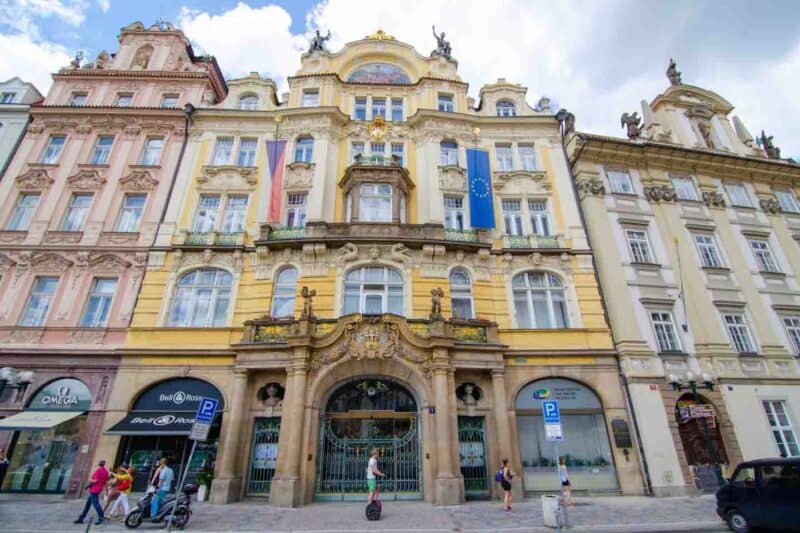
7. Paris Street (Pařížská)
Lined with beautiful buildings, the elegant Paris Street runs right through the center of the Prague Jewish Quarter. You’ll find plenty of fancy shops, upmarket restaurants, and trendy cafes here.
There are lots of high-end designers and fashion shops here, so good luck passing by without buying anything! A nice way to see the street and the quarter, in general, is to take a horse and carriage ride around the area.
Related Article: Everything You Need Know BEFORE Visiting the Prague Castle
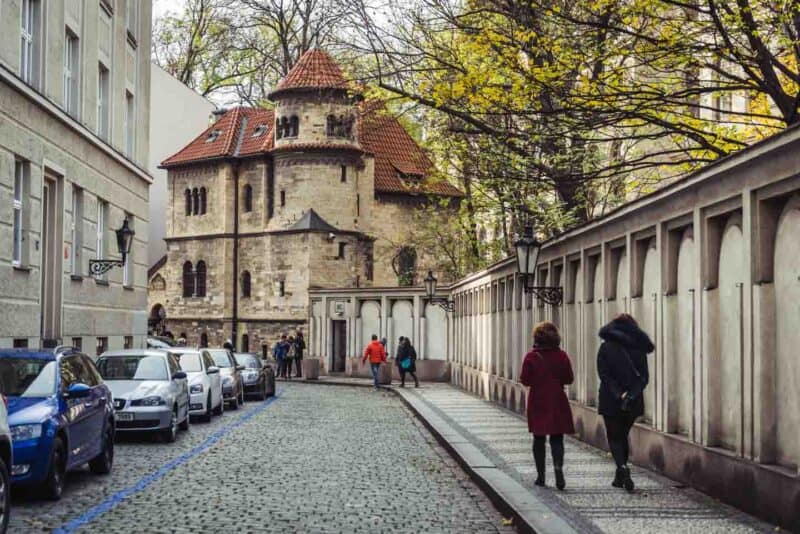
8. Ceremonial Hall (Obradni Sin)
Located right on the edge of the Old Jewish Cemetery, the delightful Ceremonial Hall appears as if out of a fairytale with its lovely Neo-Romanesque architecture. Once upon a time, it was used as a place to ritually wash the dead, although nowadays, it hosts a permanent exhibition on the practice.
You can visit the Ceremonial Hall as part of a tour or by purchasing a ticket to the Jewish Museum.
9. Jewish Town Hall (Židovská Radnice)
Once used by the Jewish Community to host meetings and events, the Jewish Town Hall is very nice to look at with its Renaissance architecture and Rococo façade, although you’re not currently permitted to go inside.
The main thing to see here are its two clocks – one with Roman numerals on it and the other with Hebrew numerals. Built in 1586 by Mayor Mordechai Maisel, it is one of the most impressive non-religious Jewish buildings in the quarter, as most of the community’s funds went to building synagogues. This is because it was in synagogues that the community usually met, prayed, and socialized.
10. The Restaurant at the Old Synagogue
With its beautiful Art Nouveau facade and lovely, ornate decorations, the Restaurant at the Old Synagogue looks absolutely amazing; you’ll find it on the popular Paris Street. It has very distinctive architecture and certainly is one of the most impressive buildings in the Prague Jewish Quarter.
You’ll find it right next to the Old-New Synagogue. In addition to the beautiful design, the food isn’t bad either! Make sure to read our best Prague foods to try before your trip.
11. Museum of Alchemy (Speculum Alchemiae)
Ever wanted to learn how to turn lead into gold?! Well, you may not quite learn how to do that at the Museum of Alchemy, but you will undoubtedly come away having had a fun and interesting time!
The 16th-century underground laboratory is full of strange vials and pots, as well as a mummified crocodile. It was here that alchemists tried to create eternal youth and discover the secrets of life. The small museum is tucked away, hidden from sight in the Jewish Quarter, and makes for a fun place to stop off at during a day of sightseeing.
Related Article: Prague’s Best Hidden Gems
Prague Jewish Quarter Tours
Another option for visiting all the Jewish Quarter’s fabulous sights is to take a guided tour. As well as taking you around all the wonderful synagogues and beautiful halls, you’ll also come away with a deeper understanding and appreciation of the Jewish community’s history and customs.
When deciding which tour to take, check what is included, as not all of them offer entry to all the places you stop by.
Most Popular Prague Jewish Quarter Tours
More Jewish Sites In Prague
While most of the Jewish Sites are understandably found in the Jewish Quarter, there are a number of other interesting Jewish sites scattered around Prague for you to check out. Let’s take a look!
Related Article: The Best Days Trips from Prague
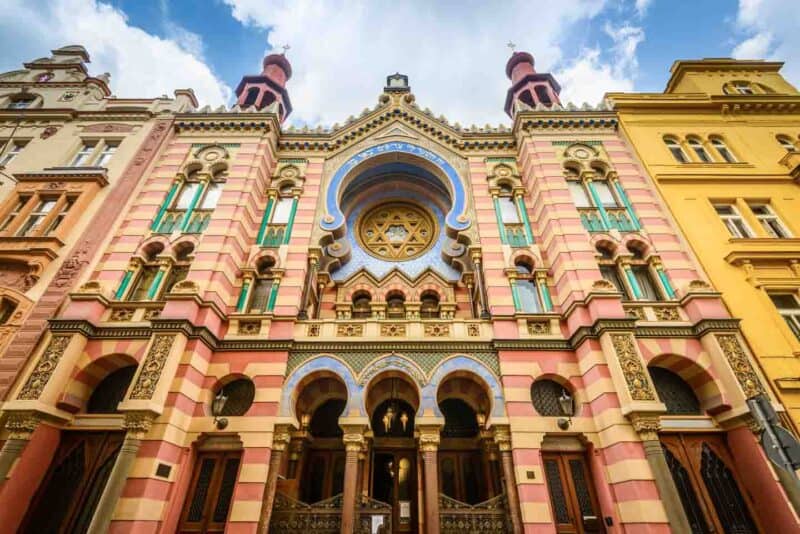
Jubilee Synagogue
Lying right in front of Prague’s main railway station, the Jubilee Synagogue also goes by the name of Jerusalem Synagogue, as it is located on Jerusalem Street. The red brick Moorish Revival and Art Nouveau facade look stunning, and the interior is even more breathtaking, so it is definitely worth going inside if you have the time.
Built in 1906, it was named Jubilee Synagogue to celebrate and honor Emperor Josef I of Austria’s silver jubilee. During the Second World War, it was one of the places used to store Jewish artifacts that the Nazis stole from around Europe.
Old Jewish Garden
Located just to the south of Prague’s Old Town is the Old Jewish Garden, which once lay outside the city walls. Formerly a cemetery, the garden is now home to a large piece of modern art that is made out of metal and shows Franz Kafka’s head slowly rotating.
The art installation is quite impressive, so it is well worth checking out when exploring the rest of what the city has to offer.
Related Post: Best Places to Visit in Czech Republic
Memorial of Nicholas Winton
In December 1938, Nicholas Winton visited Prague on holiday shortly after ‘Kristallnacht’ in Germany had taken place. Realizing that the persecution of Jews was only going to increase, he arranged for parents to sign up for their children to be taken to the relative safety of the UK.
Thanks to his efforts, 669 Jewish children managed to leave Czechoslovakia – which was invaded shortly after – and escape the horrors of the Holocaust. Tragically, the last trainload of 250 children was stopped at Prague railway station, and they were never heard from again.
His moving memorial at that very same train station is well worth visiting when in Prague. It is heartbreaking to behold as his statue holds one of the lost children in his arms.
Jewish Cemetery in Žižkov
The large Jewish Cemetery in Zizkov is one of the other main Jewish sites outside of the Prague Jewish Quarter; more than 40,000 people are buried here. As there are lots of impressive graves and tombstones to see, it’s not a bad idea to go for a wander around the cemetery if you want to escape from the busy city center for a bit.
One of the most notable names buried here is Franz Kafka, and some of the tombs are very grand in appearance.
The Legend of the Golem of Prague
When wandering around the city, you’ll inevitably see pictures or souvenirs featuring the Golem of Prague; this came about due to a popular legend. According to Jewish folklore, in the 16th century, Rabbi Loew created a Golem (a statue brought to life) to protect the Jewish Ghetto from anti-Semitic attacks.
The Golem, however, kept getting stronger and stronger, so from time to time, the Rabbi had to remove the ‘shem’ – a scroll with Hebrew incantations on it – that gave it life.
One day, Loew forgot to do this. Legend has it that the Golem went on a rampage in the streets of Prague, destroying things as they went. The Rabbi eventually managed to remove the shem and stored the Golem’s clay body in the attic of the Old-New Synagogue, just in case they ever needed it to protect them again.
No trace of the Golem’s body has ever been found, and numerous myths and legends swirl around as to what happened to it.
A visit to Prague’s Jewish Quarter is a must while visiting Prague. We hope we inspired you to include this area so rich in history in your next Prague itinerary.
More on Prague
Your Prague Nightlife Guide – Best Bars & Clubs
Prague holds the title of the biggest party scene in Eastern Europe. In this post, we’re going to tell you why Prague’s nightlife is so epic and the best places…
How to Plan the Perfect 3 Days in Prague
A step by step guide on how to tackle the city of Prague in just 3 days! Insider guide on the best ways to spend an amazing 3 days in Prague!
Top 20 Best Things To Do In Prague –
Guide to all the best sights and things to do in Prague on your first visit to this magical city! Prague itinerary plus lots of hidden gems!
Don’t Forget to Pin me for later!
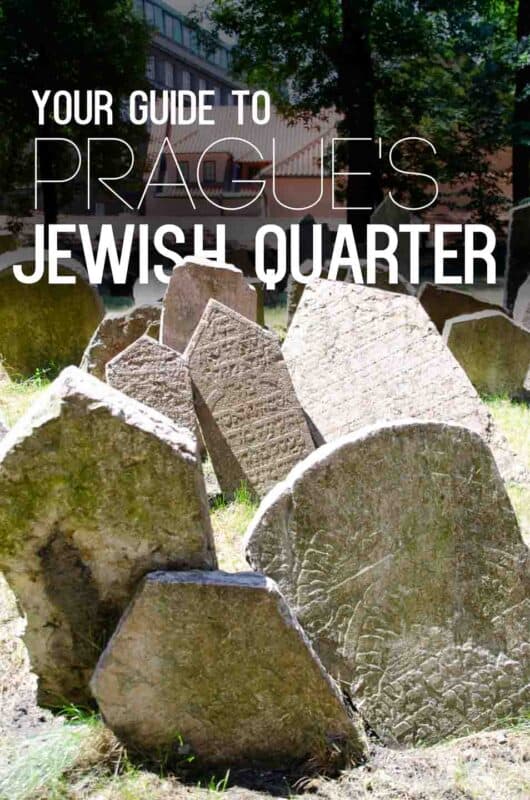
If you have visited before, what are your favorite sights within the Jewish Quarter of Prague? Let us know in the comments!
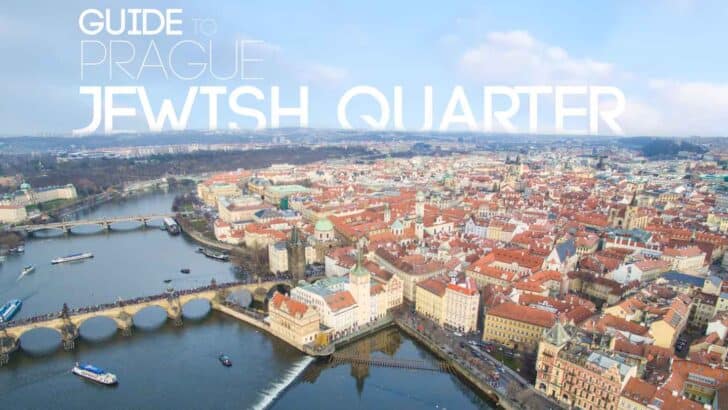
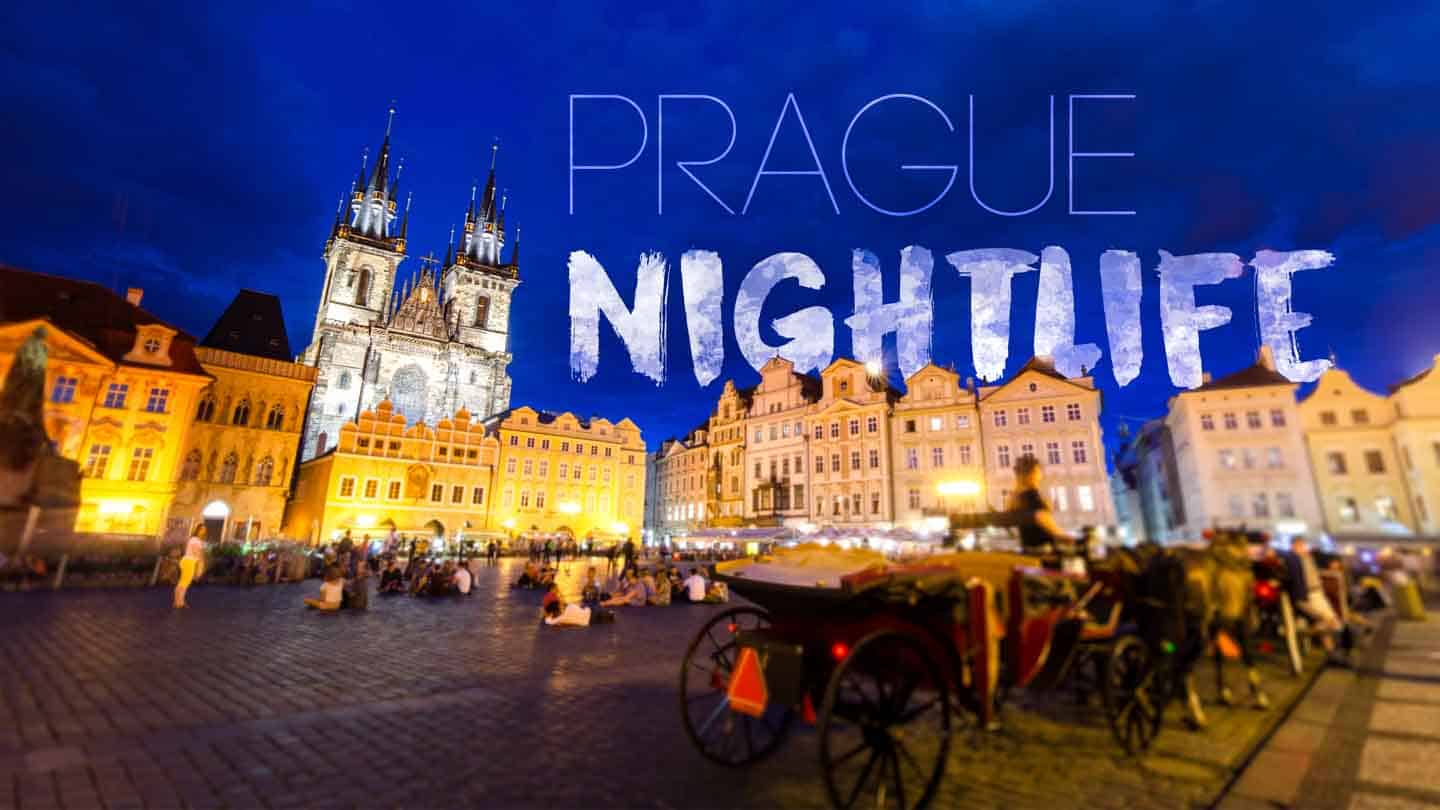
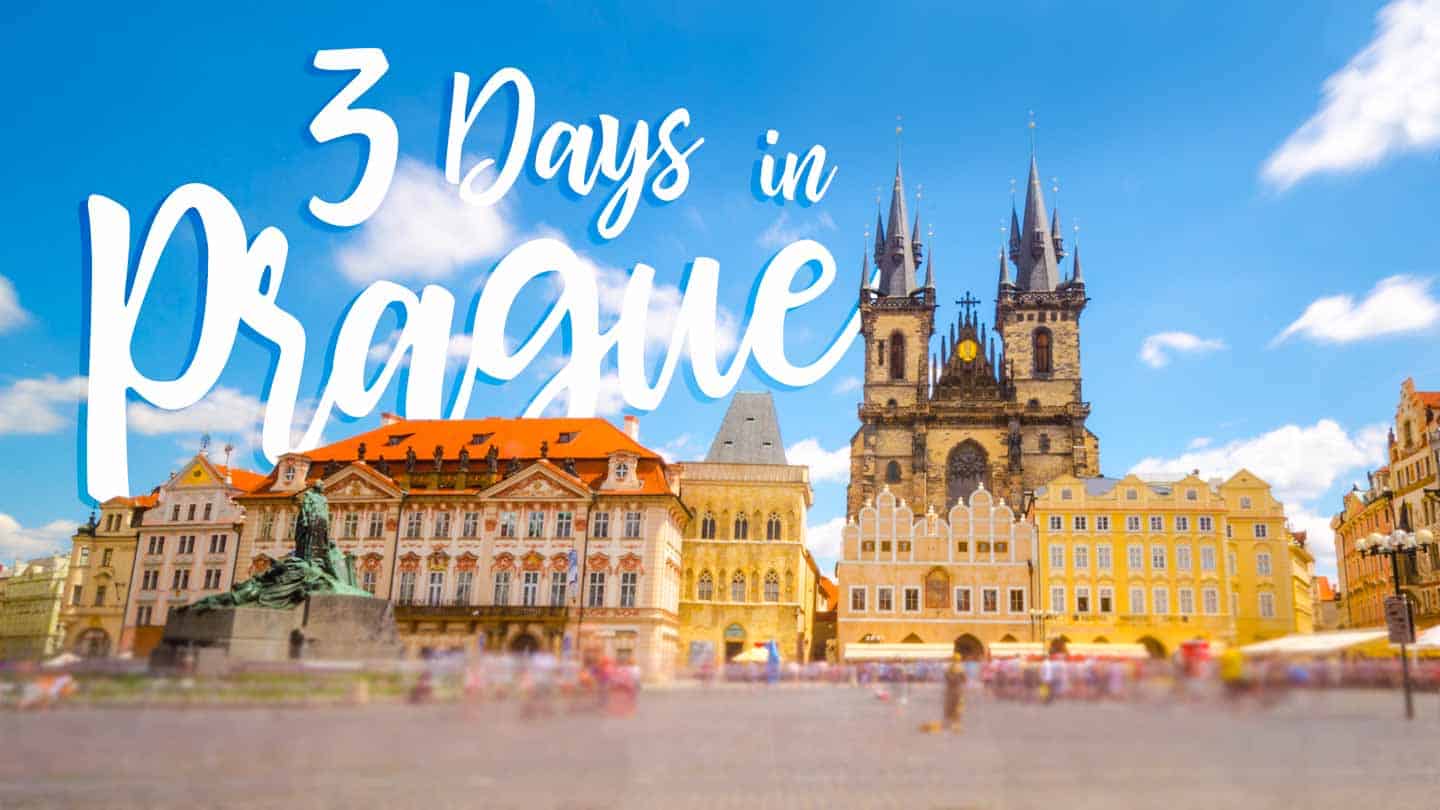
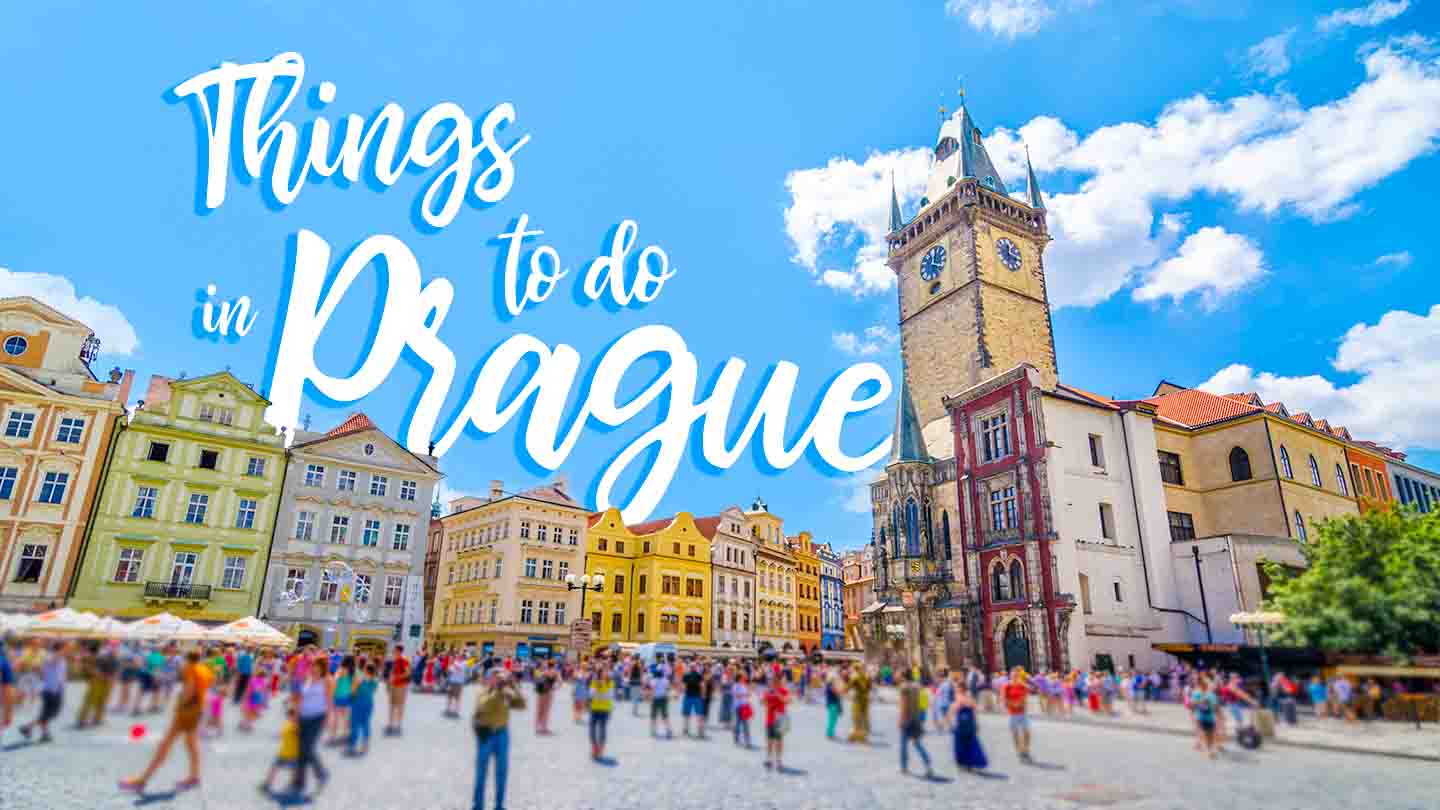
Jacov Bashi
Friday 29th of October 2021
Very useful information, I attend to visit Prague in the beginning of Dec21. The most interesting for me it’s the Jewish history and sites in Prague